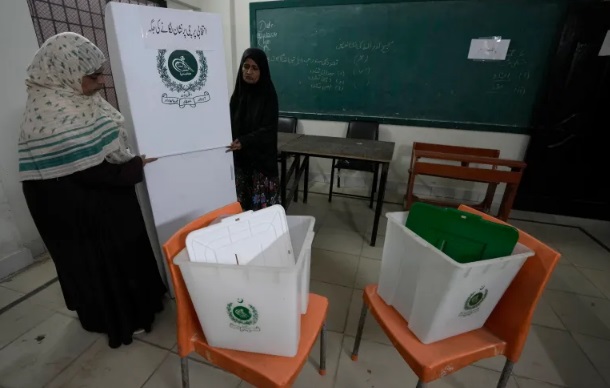
Today’s Pakistan election takes place amidst escalating violence and economic turmoil
Pakistan’s 90,000 polling stations are scheduled to operate from 8am to 5pm, with security being provided by more than 650,000 personnel from the army, paramilitary forces, and police.
On Thursday, Pakistan is set to conduct parliamentary elections amidst militant assaults, economic challenges, and heightened political divisions. As a parliamentary democracy, the country will cast votes for the House Assembly and four provincial legislatures. A total of 44 political parties, fielding 5,121 candidates, are vying for seats in the federal legislature, while 12,695 candidates are contesting in the provincial legislatures.
The country’s 90,000 polling stations will open at 8am (0300 GMT) and remain operational until 5pm, with security provided by more than 650,000 personnel from the army, paramilitary forces, and police.
Many experts speculate that the results of the Parliamentary elections might not yield a clear winner.
The main contest is expected to be between candidates backed by imprisoned former Prime Minister Imran Khan’s Pakistan Tehreek-e-Insaf (PTI) party, which won the last national election, and the Pakistan Muslim League (PML-N) led by three-time Prime Minister Nawaz Sharif, who is considered the leading contender. Moreover, Bilawal Bhutto Zardari, the 35-year-old son of former Prime Minister Benazir Bhutto, has launched an energetic campaign, despite being seen as an outsider, in his bid for the top position.
The Pakistani Army, recognized for its influence over the nation, is anticipated to have a substantial impact on shaping the election outcome in its favor. Although the military asserts that it refrains from meddling in the country’s politics, it is widely acknowledged that the army has governed Pakistan for a considerable portion of its democratic past.

Last week, PTI’s founder Khan, who has been convicted in four criminal cases, received rulings on three of them, rendering him disqualified from contesting elections or holding public office. He was handed sentences of three, 10, 14, and seven years, and is currently embroiled in over 150 additional legal proceedings.
Analysts anticipate a low voter turnout among Pakistan’s 128 million eligible voters following allegations of election manipulation by the military, resulting in the incarceration of Khan. Additionally, numerous casualties have been reported in militant assaults in the weeks preceding the elections. On Wednesday, twin explosions rocked the election office of an independent candidate in Pakistan’s Balochistan province, claiming the lives of at least 28 individuals.
The country is on high alert, with military personnel deployed at polling stations. Tens of thousands of troops and paramilitary forces have been deployed across the nation. Furthermore, Pakistan has declared the closure of its borders with Iran and Afghanistan for the day as a security precaution.
Agencies urge for free and fair elections
Amnesty International has called on Pakistan to ensure uninterrupted Internet access throughout Thursday’s polling.
The UN High Commissioner for Human Rights (OHCHR) has also denounced violence against political parties and urged authorities to ensure elections that are “free and fair”.
The foreign ministry has confirmed the presence of 92 international election observers during the polling, including representatives from the European Union and various foreign embassies. However, several rights organizations have cautioned against expecting a fair and transparent election.


